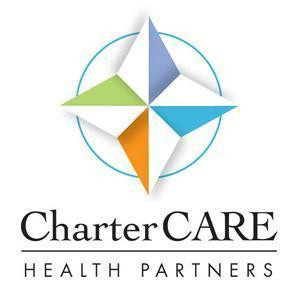Kilmartin “Failed to Mind the Store” Says Receiver in St. Joseph Pension Collapse
Sunday, October 07, 2018
Make no mistake about it, the federal and state lawsuits against the Diocese of Providence, CharterCare and twelve other entities are turning into a legal brawl.
Documents filed in Superior Court by the receiver of the largest pension fund failure in Rhode Island history — St. Josephs Health Services pension fund — blister Rhode Island Attorney General Peter Kilmartin for his actions in failing to protect the pension plan during the hospital conversion in 2014 and his legal actions creating obstacles to recovering assets to stabilize the failed fund.
“At the very least, the Attorney General failed to “mind the store” when it came to the rights of Plan participants in 2014, and continues to oppose their assertion of their lawful rights. Apparently, it will take the zealous advocacy of the Receiver on behalf of the Plan participants to obtain for them what was rightfully theirs over four years ago,” wrote the receiver Stephen Del Sesto and the special investigator Max Wistow in the documents filed late on Friday afternoon.
GET THE LATEST BREAKING NEWS HERE -- SIGN UP FOR GOLOCAL FREE DAILY EBLASTKilmartin’s office has refused comments on the claim by the receiver.
The pension fund is underfunded by an estimated $118 million, but that number may be low. More than 2,700 pension plan members pensions are impacted by the collapse of the fund.
Wistow and DelSesto went on in their condemnation of Kilmartin’s actions, “In short, the Attorney General is grasping at straws to justify his opposition to the Receiver’s Petition for Settlement Instructions. In fact, that opposition is based upon a callous disregard for the rights of the Plan participants to the pensions they earned, and preference for the for-profit operations of Prospect Chartercare.”
The legal battle centers on the effort by the receiver to tap St. Joseph’s charitable funds — now more than $11 million — that were not transferred by law to CharterCare during the sale in 2014 and were instead shifted to an independent fund. Wistow and Del Sesto have sued to have those funds be part of the recovery to stabilize the pension fund.
“What shows that best is the Attorney General’s argument that CC [CharterCare] Foundation’s assets can only be used for “funding a pension liability” if that “is necessary to save a hospital’s collapse,” and that “f diverting this income will not have any impact on the provision of health care by the existing providers, then in the State’s view, application of cy pres is not justified.”
Wistow v Kilmartin
This is not the first battle between Wistow and Kilmartin. As GoLocal in December 2017:
Wistow says that Kilmartin is one of the biggest obstacles to his efforts to determine the cause of the biggest pension collapse in Rhode Island history. The pension fund is facing upwards of a $125 million deficit.
Wistow's frustration is beginning to boil over. He says Kilmartin is blocking tens of thousands of documents and that the one document that has been released that is not publicly available shows Kilmartin had advanced knowledge of the collapse.
The one document provided unveils that Kilmartin knew at least ten days before the pension fund was thrust into receivership. Thus, Kilmartin could have helped the investigative process for the past four-plus months.
On August 25, Kilmartin issued a statement that said in part:
The men and women who dedicated their careers working at St. Joe's expected that their pension would be there for them when they retired, and rightfully so. Many, if not most, live on fixed incomes and depend on that monthly pension check to survive. Just as state employee pensioners know all too well, it can be devastating to see your monthly income decrease precipitously because of broken promises.
These retirees deserve to know how this happened and what is being done to protect their investment. I urge the receiver of the pension fund and the Court to establish and maintain complete transparency throughout this process, and to consider every available option to regain financial viability of the pension fund.
CharterCare
In related filings on Friday, Wistow and Del Sesto filed with the court requesting Superior Court Judge Brian Stern hit CharterCare will a contempt charge for violating the receivership statute for intentionally taking actions to that are in violation of the procedures and to slow or block the recovery of funds.
Receiver Stephen F. Del Sesto, Esq., Permanent Receiver of the Receivership Estate, hereby moves to adjudge Prospect CharterCARE, LLC in contempt of court.
Related Slideshow: 10 Shocking Elements of the St. Joseph Pension Fund Lawsuit Against the Diocese and Others
Related Articles
- Kilmartin Knew of St. Joseph’s Pension Collapse 10 Days Before Failure
- LIVE: Whitcomb on Al Franken’s Demise, St. Joseph’s Pension Debacle, and More
- Judge Stern Shoots Down Prospect and Attorney General in St. Joseph Pension Fund Collapse
- DelSesto, Receiver for Failed St. Joseph Pension Fund, Unveils Next Steps in Investigation
- 6 Months After The Biggest Pension Collapse in RI - What is the Status of St. Joseph’s Fund?
- Key Trust Document Shows Bishop of Providence Has Oversight of Failed St. Joseph Pension Fund
- INVESTIGATION: Diocese Underfunded St. Joseph Pension Fund by $100 Million
- Diocese Fights to Quash Subpoena for St. Joseph Pension Fund, Wistow Fires Back
- Judge Slams Kilmartin for Delaying Release of Documents in St. Joseph Pension Fund Collapse
- Diocese, Kilmartin’s Legal Delays Are Increasing Costs to Recover Monies For St. Joseph Pension
- Coming Monday - INVESTIGATION: The Real Cost of the St. Joseph Pension Fund Collapse
- Subpoena Issued to RI Foundation on $8.2M Questionable Gift Tied to St. Joseph Pension Fund Collapse
- Feds Issue Subpoenas on St. Joseph Pension Fund Collapse
- Raimondo Signs Bills to Help Settle Lawsuits in St. Joseph’s Pension Collapse
- 900K+ Documents Reviewed in Filing Lawsuits, Says St. Joseph Pension Fund Receiver Del Sesto on LIVE
- RI Foundation’s Lawyer Delays Agreement on Preservation of $8.8M in Charitable Assets in St. Joseph
- St. Joseph Pension Fund Collects $11M, Puts Pressure on Diocese and CharterCare
- Court Delays Award of $11M to St. Joseph Pensioners After AG and Foundation Lawyers Object
- 10 Shocking Elements of the St. Joseph Pension Fund Lawsuit Against the Diocese and Others
- Massive Lawsuits: Lawyers for Failed St. Joseph Pension Fund Sue Catholic Church and CharterCare
- Senate Passes Bill Encouraging Settlements in St. Joseph Pension Fund Collapse
- St. Joseph Pension Plan, UHIP Progress & More: This Week at the State House
- UNAP Issues Statement Following Lawsuit Filed in St. Joseph’s Pension Collapse
- Diocese Fights Federal Fraud Lawsuit On St. Joseph Pension Fund - Denies Any Responsibility
























